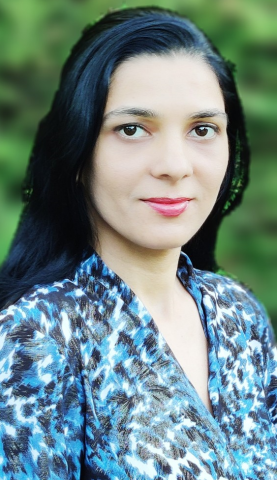Embracing generative AI: A path to enhanced efficiency and productivity
What if writing a policy brief took 15 minutes instead of two hours? What if summarizing a 50-page report felt as easy as skimming a headline? What if language translation, data extraction, and presentation drafting could all be done faster without sacrificing quality?
This isn’t a distant dream – it’s what Generative AI is already doing for millions of professionals around the world. The question is no longer “Is this technology ready?”, it’s “Are we ready to use it?”
Generative AI is a subfield of artificial intelligence (AI) and machine learning (ML) that involves the creation of original data or content, including images, video, text, code and 3D renderings.
Most of us at the UN, if not all, have already started using Generative AI to some extent. Yet, we may hesitate to incorporate it into our daily routines, as these routines are often deeply ingrained in the way we approach our work.
But here is the opportunity: Generative AI can become a powerful ally. It can assist us work smarter and with more impact. In this short blog, we make the case for breaking away from traditional habits and embracing AI as a tool to enhance productivity and innovation in our day-to-day tasks.
AI is not just a productivity booster – it is a multiplier of time and insight. AI significantly enhances the performance of knowledge workers. While the exact impact varies depending on the nature of tasks and objectives, academic research suggests productivity gains of up to 50% when AI is integrated into job functions. Choosing not to adopt AI means missing out on a substantial efficiency boost, one that could fundamentally transform the way we work.
Another important point is the risk of being left behind. Recent studies show that the number of people using AI at work is steadily increasing, with nearly half of the workforce already incorporating it into their routines. ChatGPT is now the fourth most visited website in the world, a sign that AI is not a niche innovation, but is increasingly shaping everyday digital experiences. According to the ILO’s Science-Policy Brief on Generative AI and Jobs, AI is expected to transform the nature of work, particularly by reshaping the tasks people perform within their existing jobs.
As a global organization with a unique mission and mandate, the UN is not just striving to keep pace with technological change – it aims to lead by example, particularly in using technology ethically, transparently, and inclusively. These tools are evolving every day and learning how to use them can be both engaging and rewarding. We now have AI systems capable of completing in minutes research tasks that would otherwise take hours or even days. Embracing AI for complex projects can dramatically improve efficiency, reduce costs and accelerate timelines.
The annual Cochrane Reviews publication is highly relevant, consisting of systematic reviews of primary research on human health care and health policy.
A standout example of AI’s potential comes from the global health research community. In 2024, researchers from the University of Toronto, MIT, Université Paris Cité, the Ottawa Research Institute, and the University of Ottawa developed a project using advanced AI tools. They were able to reduce manual workload by the equivalent of 12 years of staff time while achieving better results than in previous editions. This isn’t just about speed – it is about better quality and higher consistency, even in complex, high-stakes domains.
The main challenges to adopting AI aren’t technical – they’re cultural. Concerns about trust, intellectual property, accuracy, and data privacy are valid, but they highlight the critical need for responsible, ethical and guided use, not avoidance. Equally valid are concerns about the environmental impact of AI, which needs to be recognized and addressed in order to realize its potential for advancing sustainable development.
Moving forward means creating safe spaces for experimentation, developing clear guidelines that define the role of human oversight, and investing in inclusive training to build staff confidence. Like any new colleague, AI should be introduced thoughtfully trained, tested, and supported to become a reliable part of the team. This aligns with the UNESCO Recommendation on the Ethics of AI, which emphasizes human rights, transparency, and accountability, and with the UN Secretary-General’s “Governing AI for Humanity” initiative, which calls for coherent global governance grounded in the values of the UN Charter.
Several UN agencies and programmes have been important pioneers in the use of Generative AI. Examples include the World Food Programme (WPF), employing AI to automate content creation, and UNHCR, using it to simplify legal texts for refugees, thus improving communication and access to services. These initiatives demonstrate the added value of Generative AI in complementing and enhancing existing workflows without replacing human expertise.
However, to truly scale these benefits across the UN system, coordination, capacity building, and forward-looking leadership are required. All of this shows that the world around us, including the UN, is moving rapidly and it's our responsibility to keep up. We must educate ourselves, understand the risks and limitations, and learn how to integrate these tools into our daily work. By doing so, we contribute to meaningful improvements in both efficiency and quality.
The moment is now!
Generative AI is not a trend – it’s the next layer of digital transformation. If we embrace it with care, curiosity, and collaboration, it can help us become a more agile, responsive, and efficient organization without compromising on the values we stand for.
So, let’s ask ourselves:
-
What are we spending time on today that AI could help optimize?
-
What impact could faster, clearer communication have on our programmes and partnerships?
-
How can we use AI to serve – and not sidestep – our mission of global peace, development, and dignity for all?
Let’s harness the power of AI – but first, let’s explore, learn and grow together.
Have a look at our latest offering, UN Generative AI Professional Certificate (Fall Semester 2025)


